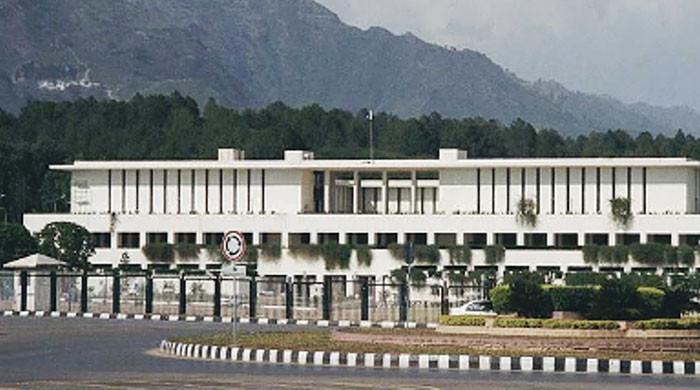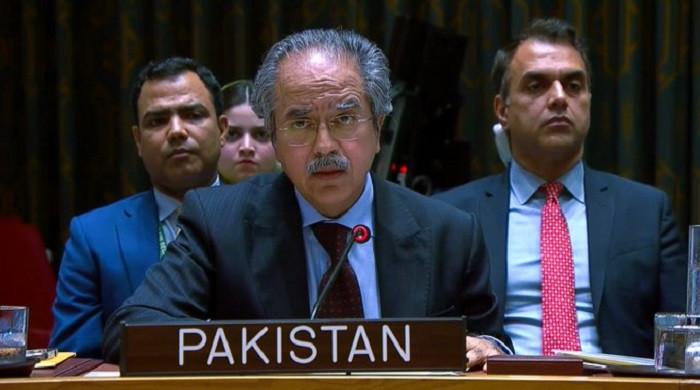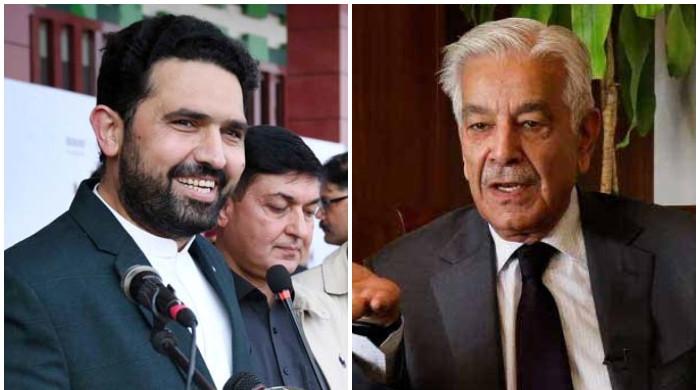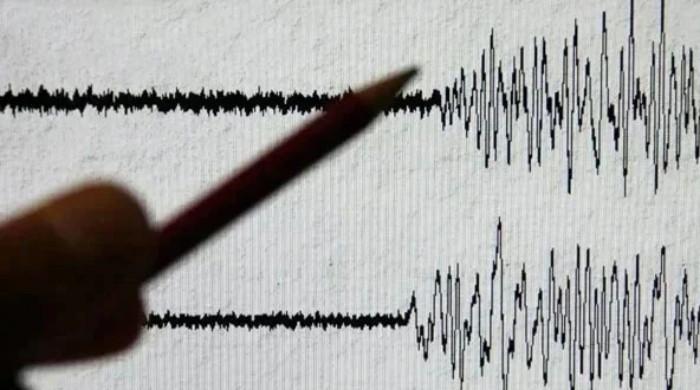Explainer: No, the speaker cannot bar PTI MNAs from voting against party
Information minister Fawad Chaudhry says NA speaker will not count votes of PTI MNAs who have crossed the aisle
March 10, 2022
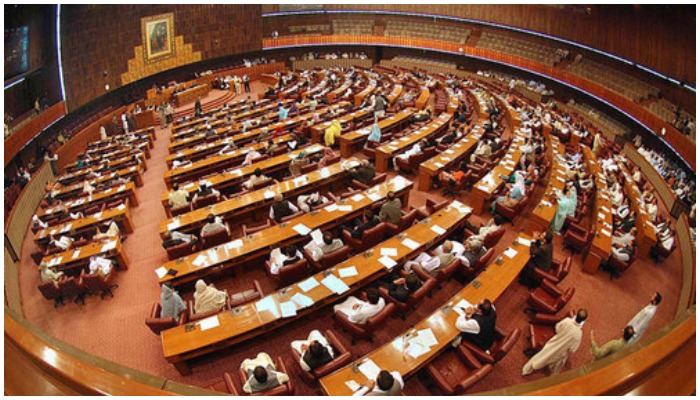
The speaker will not count the votes of the members of the national assembly, from the ruling Pakistan Tehreek-Insaf (PTI), who have crossed the aisle, the minister for information told a private television channel on Wednesday.
Talking to the channel, Minister for Information Fawad Chaudhry said that if the speaker sees that an MNA has left the party, then the speaker will not include that vote in the final vote of no confidence against Prime Minister Imran Khan.
Citing Article 63A (1) (a) of the constitution, the minister claimed that if an MNA resigns from a party and joins another party and their option is clear. “The speaker can right away send a reference to the election commission against them. So, the opposition is under a misconception,” he added.
Article 63A (1) (a), titled ‘Disqualification on grounds of defection’ is reproduced below:
If a member of a parliamentary party composed of a single political party in a House
(a) Resigns from membership of his political party or joins another party.
Chaudhry’s statement comes as the opposition claims it has the support of over 20 PTI MNAs who are ready to turn against the prime minister in the vote of not trust.
Can the speaker bar PTI MNAs from voting against party lines?
No, because the Article 63A clearly states that if an MNA of a political party crosses the floor, on the issue of vote of no confidence, then the party head, therefore Prime Minister Imran Khan, will have to declare in writing that the member has defected.
A copy of the letter will then be sent to the chief election commissioner as well as the defected member.
However, before the written declaration, the party head will have to provide the MNA “an opportunity to show cause as to why such declaration may not be made against him,” the Article reads.
Once the above process is complete, the written declaration will be laid by the chief election commissioner in front of the election commission, which will have a further 30 days to confirm the declaration, meaning declare the seat vacant.
Also, the Article adds that the member has a right to appeal the decision of the election commission in the Supreme Court within 30 days and the Court shall decide the matter in another 90 days.
Legal expert Reema Omer further explained in a tweet that in the Imran Khan vs Ayesha Gulalai case, the Supreme Court held that the person who is being proceeded against must be given a chance to be heard by the party head before sending a reference to the election commission.
Can the speaker reject the casted votes?
Again, no.
Aasiya Riaz, the joint Director of the Pakistan Institute of Legislative Development and Transparency (PILDAT) tells Geo.tv that the speaker cannot reject the casted votes, as there is no ballot paper involved when voting on a vote of no trust.
Riaz also explained how voting is conducted during a vote of no confidence. “Every member walks past, into the lobby, and their votes are recorded by secretariat,” she said, “Meaning that every lawmaker goes out of one door and at that door the secretariat records each vote against list of MNAs.”
Can the party head stop PTI MNAs from attending the NA during the vote of no trust?
PILDAT’s Aasiya Riaz said that party head can’t ask in writing for its MNAs to not enter the assembly or vote. “These are constitutional rights and privileges of MNAs," she explained. “On disqualification on grounds of defection, Article 63-A of the Constitution is very precise about its application. There’s no other law defining disqualification on grounds of defection.”






